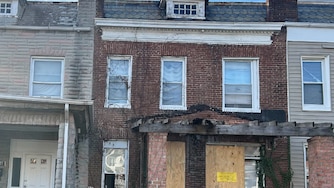One year after word first began to spread, many residents of Baltimore, Carroll and Frederick counties remain infuriated by a proposed 70-mile power line project threatening farmland and horse country across the state.
Del. Nino Mangione on Wednesday hosted his third town hall on the subject at the Hereford High School auditorium in Parkton to give constituents and affected Marylanders an update about the Maryland Piedmont Reliability Project.
The $424 million project, which emerged to the surprise of many residents last summer, would snake from Pennsylvania to northwest Virginia to power data center development in the Old Dominion State.
Instead of using existing transmission lines and infrastructure for the project, the company seeks to build new lines that would cut through farmland, wineries and homes in Maryland.
The only snag?
Public Service Enterprises Group, the company contracted to construct the pipeline by PJM Interconnection, the region’s power grid operator, will inevitably affect 409 individual landowners along the way.



Mangione invited state Sen. Chris West; Kevin Ford, a local farmer and member of the Baltimore County Agricultural Advisory Board; and Harris Eisenstein, a real estate attorney representing the landowners, to discuss updates and answer questions in Parkton. Here are answers to some questions about the controversial project:
What is the MPRP?
Those opposed to the transmission line project, such as West, refer to the MPRP as a “70-mile extension cord” that will take away land from Marylanders and provide zero energy to the state’s residents.
Officials from PJM, the regional transmission organization that coordinates the movement of wholesale electricity through Washington, D.C., and 13 states including Maryland, wholly disagree.
“If the Piedmont Reliability Project doesn’t get built, PJM says, the region will suffer rolling brownouts and blackouts as soon as 2027,” The Baltimore Banner previously reported.
PJM representatives argue the MPRP is necessary to provide electricity to a growing collection of data centers in Virginia.

These computer warehouses — tasked with storing old emails and powering artificial intelligence — are hoarding electricity that will increase demand on the grid.
Over the past year, affected residents have mounted a fight against the project, banding with Republican lawmakers and environmental activists to preserve the land.
Mangione, a Baltimore County Republican, explained that their goal is to convince the Maryland Public Service Commission, which regulates utility projects in the state, to deny MPRP’s permit.
Where do the legal challenges stand?
In December 2024, the New Jersey-based Public Services Enterprises Group (PSEG) applied for a project permit through the commission.
The permitting process requires the company to conduct environmental surveys on landowners’ properties.
Most, if not all, residents have refused to grant permission, Eistenstein said. PSEG sued 117 landowners in April, asking a federal judge to grant the company access.
Last month, U.S. District Judge Adam B. Abelson ruled in PSEG’s favor, granting the company access to properties.
Eistenstein appealed the decision on behalf of dozens of landowners to the 4th U.S. Circuit Court of Appeals, but for now, Abelson’s ruling stands.
On Tuesday, PSEG filed a second suit against an additional 201 landowners, Eisenstein said.
The attorney encouraged any of the 117 landowners named in the first suit to allow PSEG’s surveyors on their land.
“My recommendation, if the time comes, is to cooperate. Document everything,” he said. “Take photographs, take video evidence, take meticulous notes. If you don’t obey a court order, there will be consequences.”
Eisenstein cautioned that if the landowners’ appeal is unsuccessful, it does not mean that PSEG can build the power lines or acquire residents’ land by eminent domain.
That ultimate decision lies with the Public Service Commission.
When will state make a decision?
It’s unclear when officials will vote on whether to grant the key permit to build the MPRP.
Mangione and West told those attendees at Wednesday’s meeting that the state agency may issue a fall schedule at the end of the month.

The five commissioners who are on the board were all appointed by Gov. Wes Moore, who has yet to signal if he will encourage the commission to approve or reject the project permit.
Moore has previously met with representatives from PSEG and PJM. However, opposed landowners, lawmakers and environmental activists said the governor has ignored their concerns.
Last fall, however, Moore did express “serious reservations about how this process has been conducted thus far, and the type of engagement I expect with our communities.”





Comments
Welcome to The Banner's subscriber-only commenting community. Please review our community guidelines.